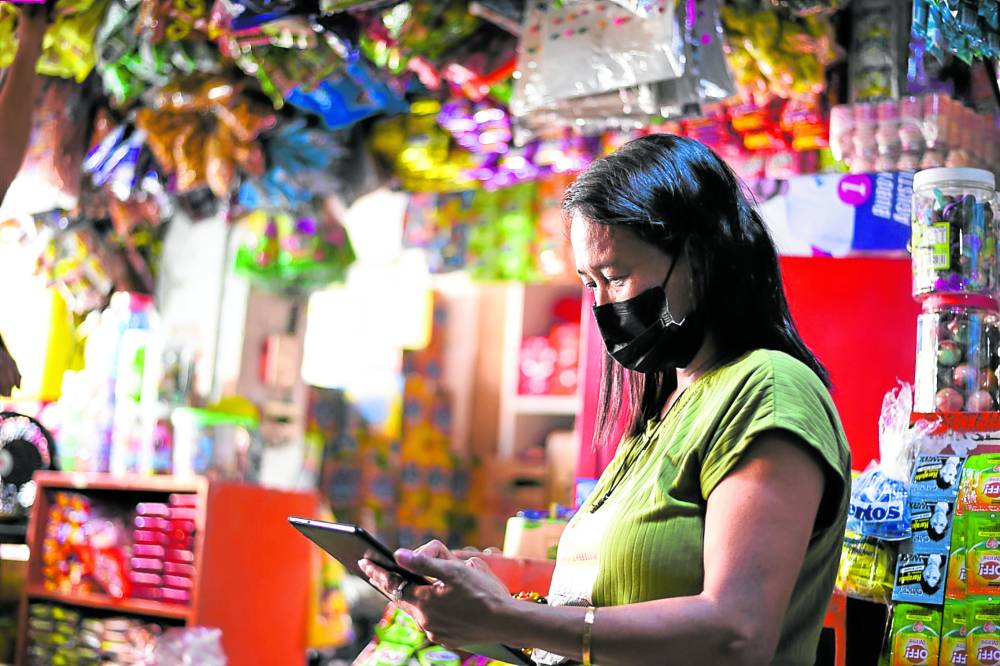Inflation-proofing Filipinos, one ‘sari-sari’ store at a time

PRICES BITE “Sari-sari” owners are under pressure to raise their markups and profit margins. —Contributed photo
“When the going gets tough, the tough get going.”
For some, this may be a reference to a 1986 Billy Ocean song. But for many others, this may come as a frequent phrase to live by, especially at a time when the prices of goods and services are higher than usual.
Recently, the Philippine Statistics Authority (PSA) reported that the country’s inflation rate was 6.1 percent in May. Although it was lower than the previous month’s 6.6 percent, it was still higher than the same time last year at 5.4 percent.
In the midst of ceiling-high prices of goods, a neighborhood lifeline offers relief for many Filipinos, especially those in lower middle-class communities. And this lifeline is scattered across the entire archipelago—about 1.3 million of them to be precise.
However, a study we conducted early this year in collaboration with sociocultural research firm Fourth Wall suggested that Filipino consumers at the local level were still plagued by high prices. Data obtained from our intelligence tool Sari IQ saw sari-sari store inflation rate had averaged 15.6 percent, 4.4 percent greater than the official food inflation rate of 11.2 percent reported by the PSA in January. Based on our findings, the pressure on owners to raise their markups and profit margins could have resulted in the higher inflation rate experienced by sari-sari stores.
Given that around 14 million Filipinos considered themselves poor in the first quarter of 2023, sari-sari stores are integral in empowering consumers, especially in lower-income areas.
Addressing the effects of inflation on the hyperlocal retail ecosystem could be a step forward for people in the lower-income bracket. We at Packworks have been working with the local nanays and sari-sari store owners and through these grassroots efforts, we believe key measures could make things a bit easier for them.
One way is to provide access to affordable supplies. Efficient distribution networks and access to quality goods at reasonable prices ensure competitive pricing and affordable options in them. At Packworks, we work with fast-moving consumer good companies to provide promotions and discounts to our partner sari-sari store owners. Through this, we aim to help them manage the rising costs and, as a result, enable customers to cope with the impact of inflation on their budgets.
Giving them access to financial products to borrow capital at lower interest rates may also help alleviate their struggle. Store owners frequently find themselves burdened with debt due to the excessive interest rates on loans. Also, although pushed into the wall to raise markup prices in the goods they sell, some store owners would often resort to settling with minimal profit. For them, their customer base is more than their source of income but a community—they are kumares and kumpares (buddies), trusted neighbors, even chismis (gossip) buddies. It is a pain point Packworks is focusing on solving, and we hope others look at it too.
While we wait for the high tides of prices to go down, we must look at what we can do to ensure that no one is left behind. Let’s aim to keep sari-sari stores accessible—not just by keeping them open for business but by allowing them to display abundant and affordable options for all.
—contributed
Ibba Bernardo is cofounder and chief marketing officer of Packworks, a startup that brings technology-based solutions to help sari-sari store owners become more efficient in managing their business.














